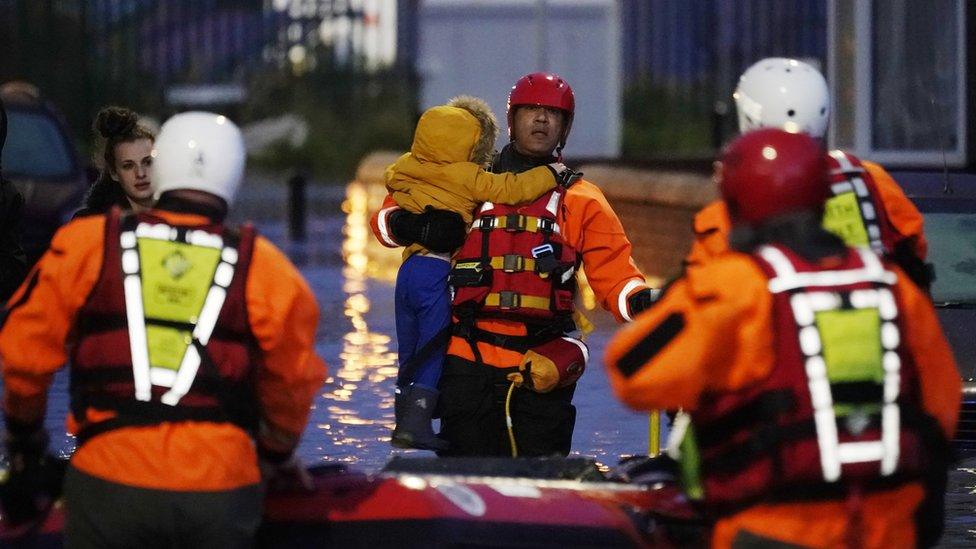England flooding: What's life like in Fishlake?
- Published
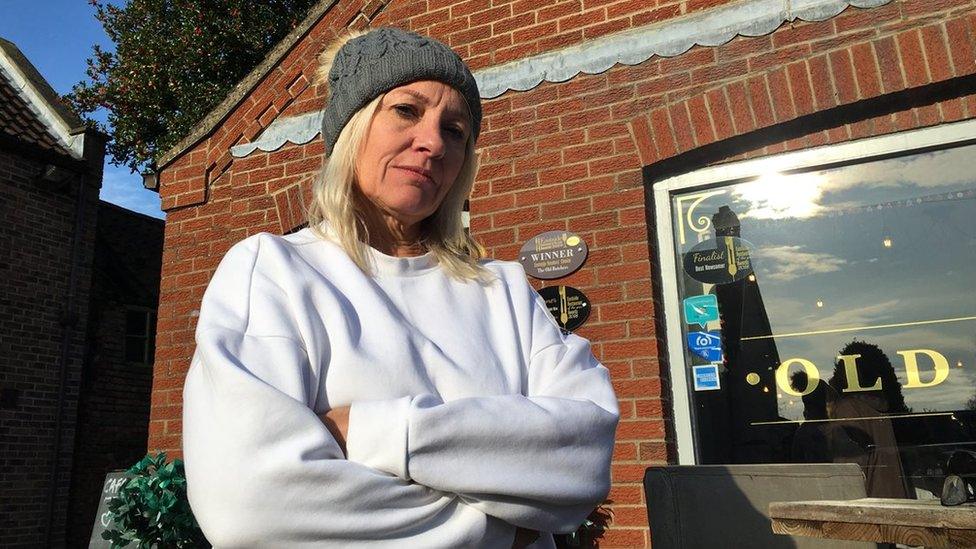
Claire Holling is now sleeping on a friend's sofa after her home was flooded
Five days after water swamped dozens of homes - forcing hundreds of people to flee - what's life like in a flooded village?
It was while driving home to Fishlake from hospital that Claire Holling first noticed how heavy Friday's rain was.
She had been to visit her newborn niece, who had arrived that morning, and upon returning home made herself a warming coffee.
When she looked out of the window she was aghast - water was flowing out of the fields and creeping up the road towards her home.
She began to alert her neighbours and hastily moved some of her belongings upstairs.
She then scrambled to her nearby brother's house to save their newly bought Moses basket and other new baby paraphernalia, but as she arrived the power went down, the house plunged into darkness and the water arrived.
A few days later Claire recalls the adrenaline and disbelief but also the response from the emergency services.
The BBC's David Shukman views the scale of the flooding in the Doncaster area from a helicopter
"The fire and the police - they just suddenly came from nowhere," she says.
However, it was when the boats arrived - the specially designed flat bottomed rescue inflatables - that the seriousness of what was happening to her and her village began to dawn on her.
Since then, the clean-up has begun in the places where it's possible.
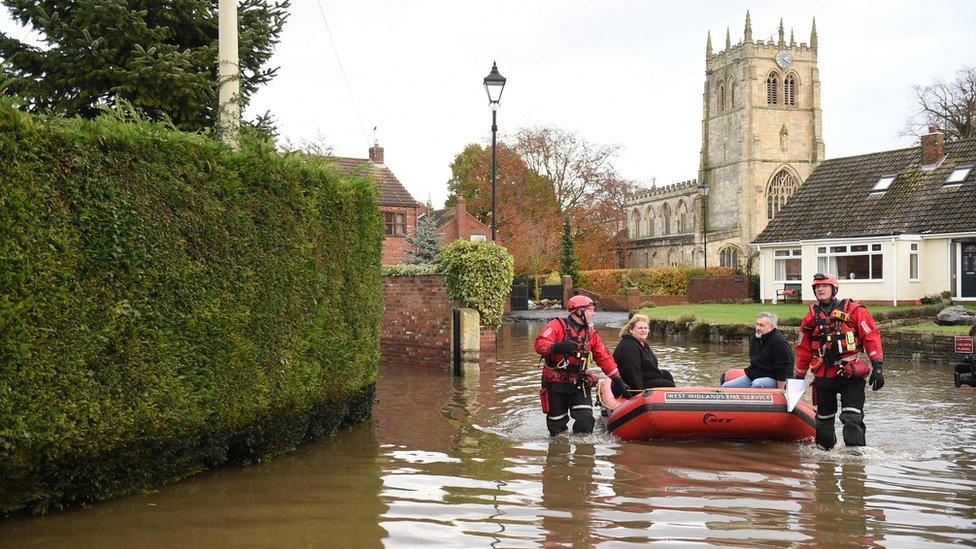
The response of the emergency services has been praised
In the wake of the water's retreat, Claire faces the destruction of the furniture she saved for and the wallpaper she lovingly chose.
She must also deal with the fearful unknowns, like worrying about what the water may have done her home's foundations and the prospect of it happening again?
Then there's the question mark of insurance which is concerning a lot of people in Fishlake, although as Claire surveys the wreckage she remembers with relief that she'd renewed her's the week before the flooding came.
Children speak out about life after flooding
She now spends her nights sleeping on her friend's sofa and days serving coffee in the village cafe.
Her customers - who are asked for contributions to the relief charity rather than payment - are the tired emergency crews and residents who go there for a warm drink, a spot of conversation and an escape from battered homes.
The cafe is a short walk from St Cuthbert's Parish Church, an ancient 11th Century religious refuge now full of all manner of emergency supplies and, thanks to church warden Peter Pridham, open around the clock.
Maps are spread out across 14th Century tombs because the rescue workers have been using it as a makeshift operations and command centre.
The pews are loaded with clothes, bottles of cleaning materials, tinned food of all varieties and bags of dried pasta.
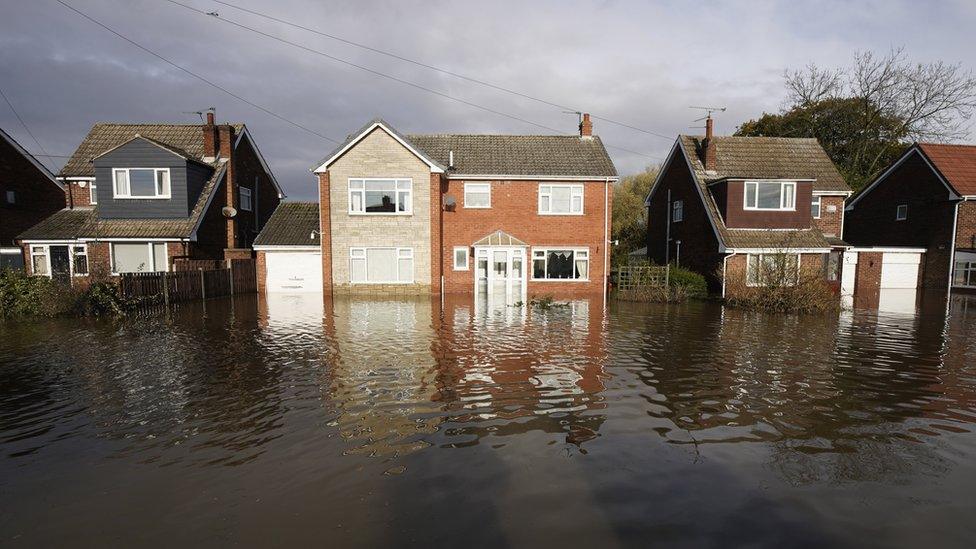
Some residents have been told they will be out of their homes for up to three weeks
People also come here to share stories and news.
You get the sense this is a community pulling together, organising and working to help one another.
But there's criticism of the authorities. They're seen by some as having been long overdue with warnings, and Doncaster Council is said to have been slow to arrive with help - something that's stoutly denied by the town's councillors.
Living in Fishlake is now an exhausting business.
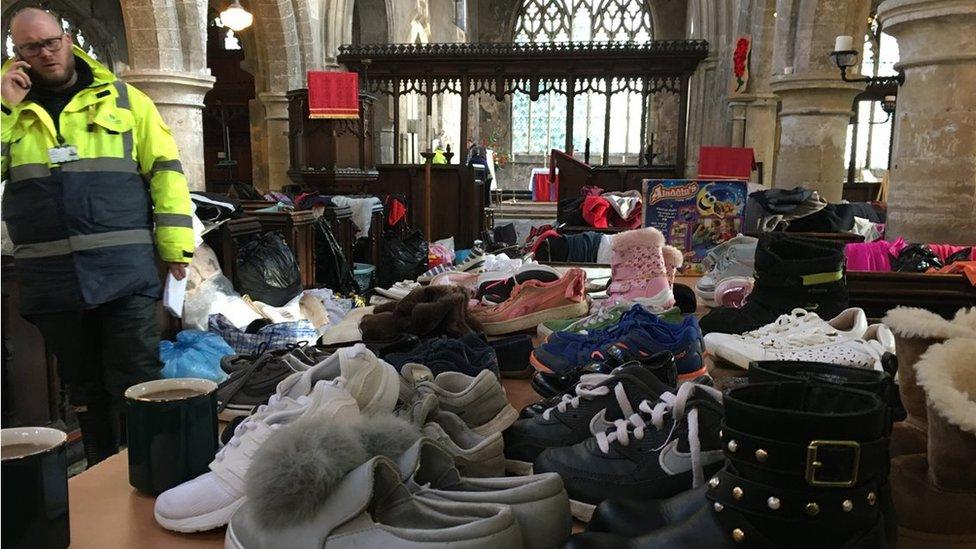
The church is full of goods including clothes and shoes
The roads into the area remain flooded - five days after the rain catastrophically swelled the River Don.
Some bridges also have a question mark over their structural safety.
The emergency crews with their boats are still here, checking on a small number of people who've decided to tough it out in freezing homes with no electricity and under water ground floors.
As one rescue worker pointed out, it's difficult to judge what they should do.
If it happened to you, what would you do? Would you leave your home or hang on and try to sort it all out?
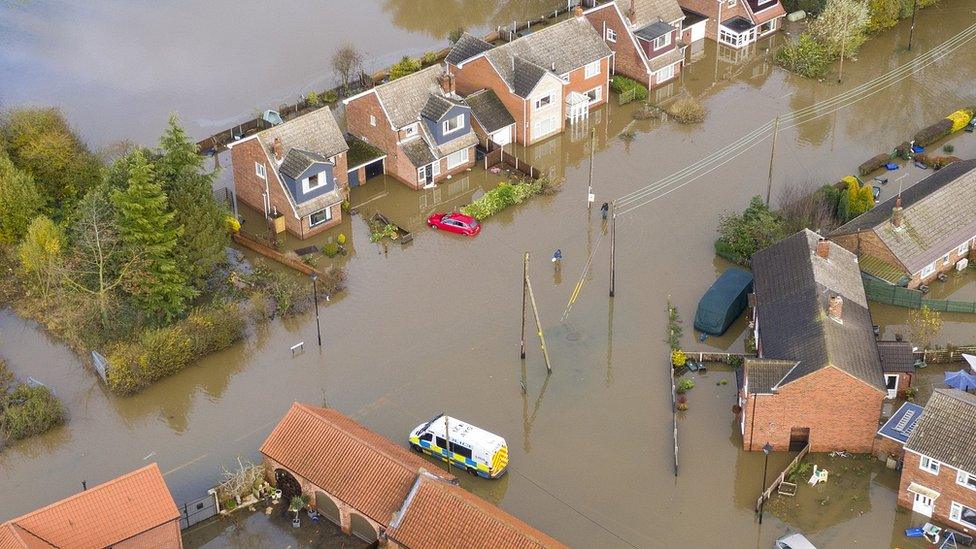
A fire officer described it as a "hearts and minds job" - a reassurance mission so people don't feel they're alone.
South Yorkshire Fire and Rescue Service still has what it says is operational control over the area and constitutes a "national resilience" response along with other officers from as far away as the West Midlands, but it admits there's less and less it can to do as time goes on.
The village now faces a long process, involving new carpets, moving power fittings halfway up walls and a complete decontamination.
The area doesn't have a gas supply and oil from overflowing tanks, together with effluent from fields, was mixed in with the water that flowed into people's kitchens and living spaces.
There's still a subdued shock on many people's faces - the sprint of survival and rescue now replaced with the grinding marathon of rebuilding lives.
- Published13 November 2019
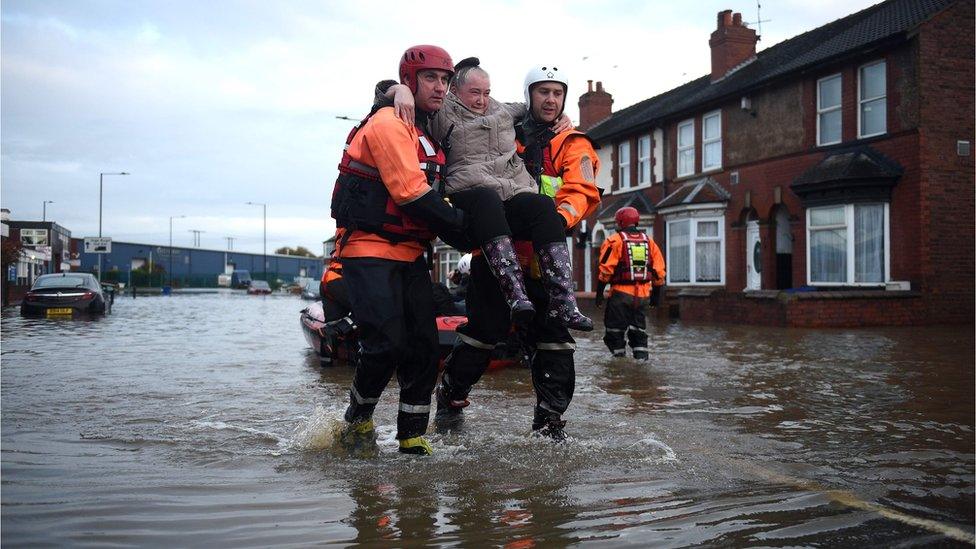
- Published12 November 2019
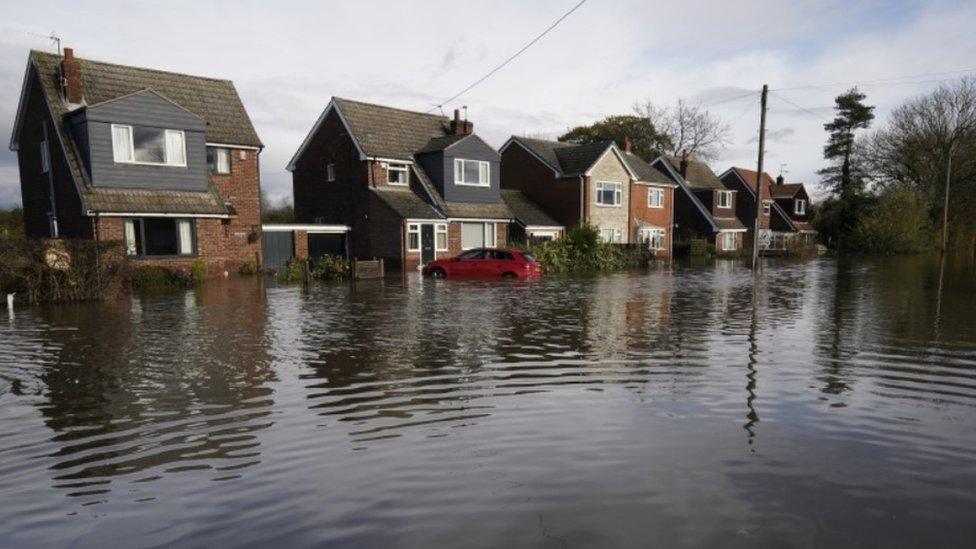
- Published12 November 2019
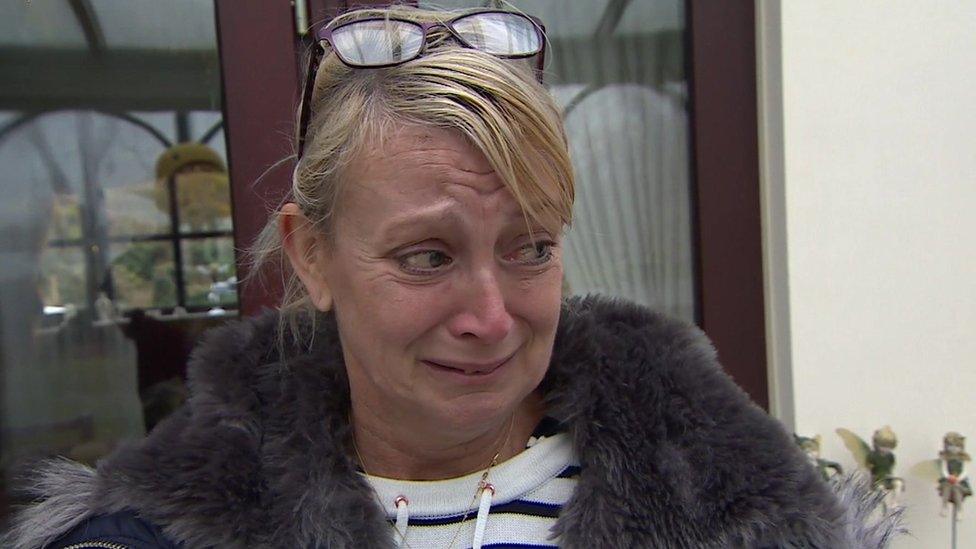
- Published12 November 2019
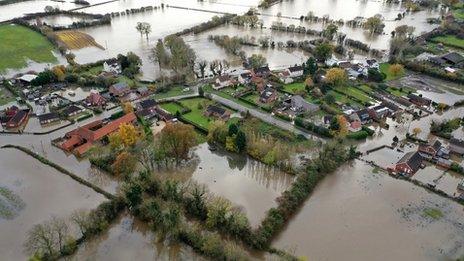
- Published12 November 2019
